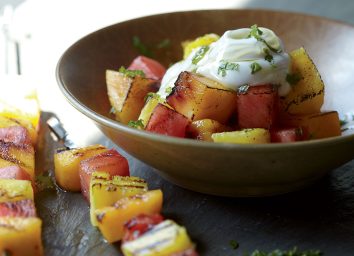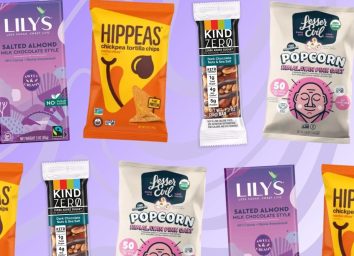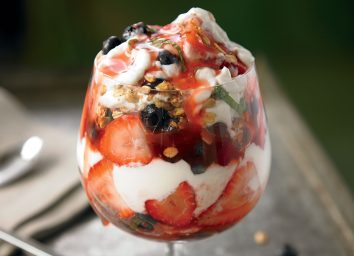The Health Benefits of Dried Fruit
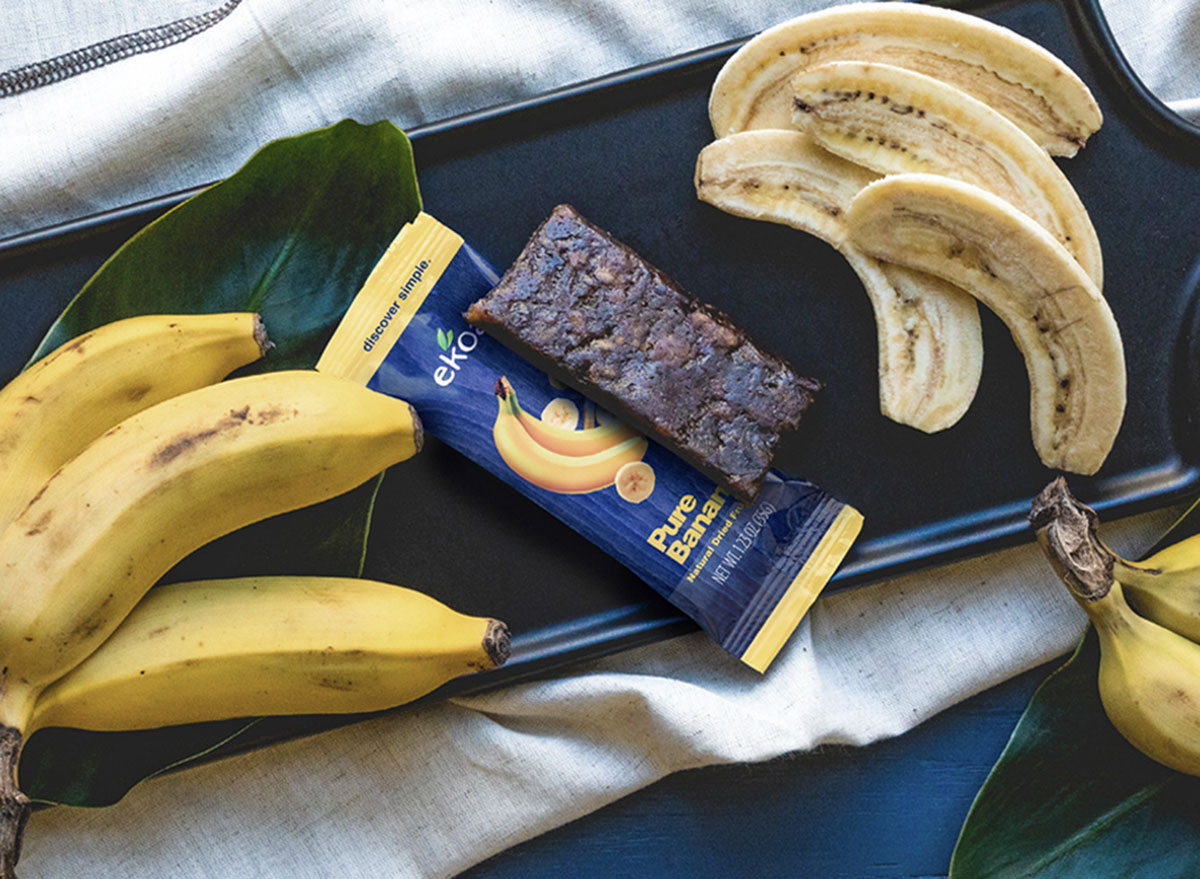
In partnership with Ekoa
While there are many benefits to eating whole fruits—especially in terms of satiation—many of those benefits still apply to their dried counterparts. By simply extracting the water content in fruit, you now have the perfect on-the-go snack that will satisfy your sweet tooth, while providing a lot of benefits for your health.
But is every type of dried fruit actually healthy for you? There are certain key elements in choosing the types of dried fruits that you consume, particularly in terms of the ingredient list. Ekoa bars will have up to three simple ingredients maximum in their list, but not all dried fruit is that transparent.
In order to properly know the health benefits of consuming dried fruit, we spoke to Rachel Paul, PhD, RD from The College Nutritionist, as well as Kelli McGrane MS, RD for weight loss-focused app Lose It!, about the key factors that will benefit your health when consuming dried fruit on a regular basis.
What are the benefits of dried fruit?
Dried fruit is packed with nutrients, especially fiber.
The first and probably most enticing benefit of eating dried fruit is all of the nutrients inside such a small, snackable package. Nutrients commonly found in dried fruit include vitamin A, vitamin K, polyphenols, and, of course, fiber. The fiber count in dried fruit is particularly high, especially when the dried fruit bars include dates (which can help pregnancy and prevent several diseases). Three of Ekoa’s bars are currently made with dates: Pure Mango, Pure Pineapple, and Pure Coconut. There’s also Pure Banana, which is made with just dried banana.
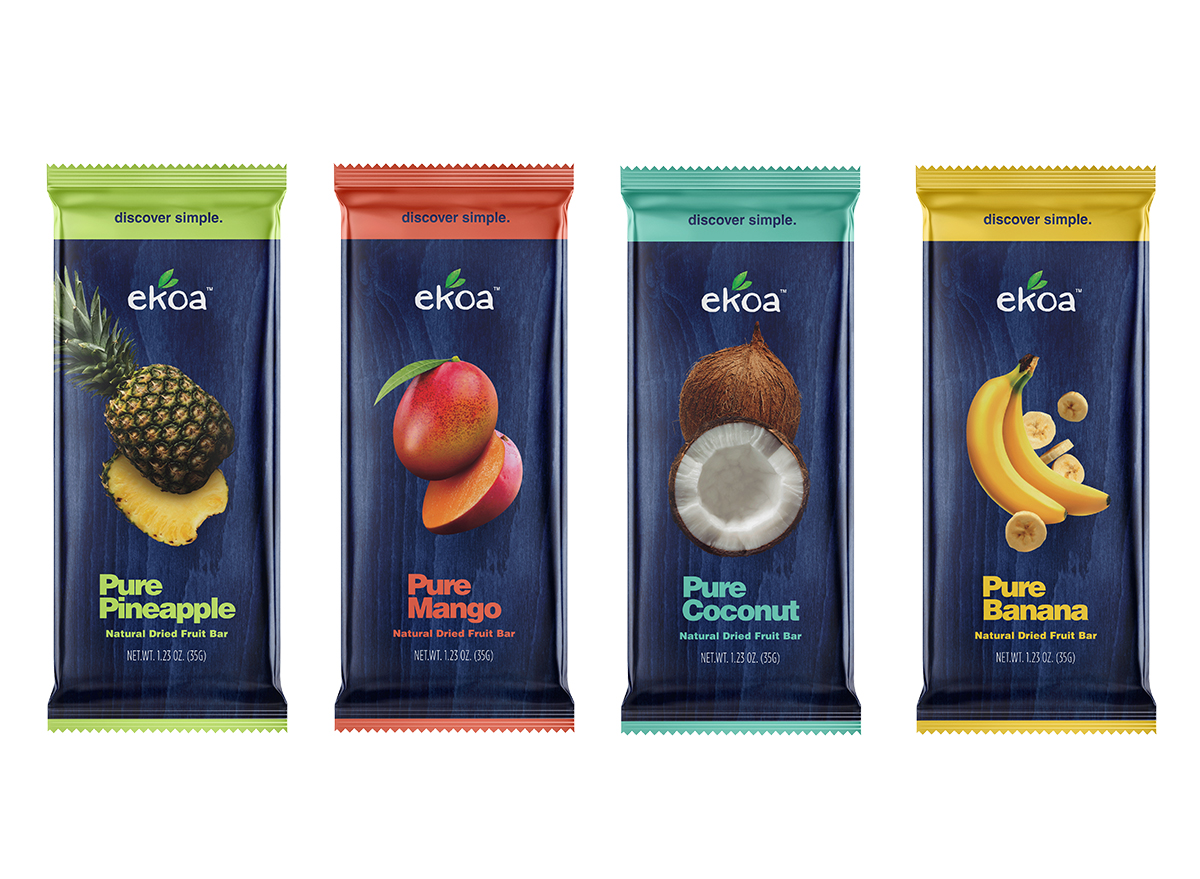
“I know for a lot of people, the reason they include it in their diet is to help with going to the bathroom,” says Paul. “It’s such a concentrated form of a lot of nutrients, including fiber, it can be really helpful as a natural laxative.”
The polyphenols are also helpful in terms of one’s blood health.
“Dried fruits, in particular, are rich in polyphenols, antioxidants that have been associated with improved blood flow, reduced oxidative damage, and reduced risk of chronic disease,” says McGrane.
It will help you reach daily nutrient quotas.
Naturally reaching daily quotas for your nutrients can be rather difficult, and that’s one of the key reasons why people take vitamins or other supplements on a daily basis. Dried fruit can serve as a natural supplement by filling up on one’s daily quotas—especially for potassium.
“Many dried fruits are good sources of potassium, which many of us don’t get enough of on a daily basis,” says McGrane. “Potassium plays an important role in muscle contractions, preventing fluid retention, maintaining blood pressure levels, and regulating nerve signals.”
Ekoa’s Pure Banana bar is particularly high in potassium, bringing in 10 percent of your daily quota in one small 120-calorie bar.
It’s allowed in numerous types of diets.
Although dried fruit isn’t particularly helpful for low-carb diets like keto, it can actually be beneficial for those looking for a snack on other diets. Gluten-free, vegetarian, vegan, paleo, and Whole30 diets all allow dried fruit to be consumed. Paul says that any type of raw-food diet should allow dried fruit.
It’s portable.
Need something for your next road trip that doesn’t require any refrigeration? Dried fruit is the perfect nutritious option that is easily portable and won’t perish for a very long period of time. Whether you’re hiking, driving, flying, or even just heading off to work for the day, grabbing a dried fruit—like a perfectly portioned Ekoa bar—is a great choice for a healthy snack when you’re on the go. Instead of hitting up the vending machine or convenience store with sugary snacks and salty chips that’ll have you crashing fast, a dried fruit bar can offer you sustained, natural energy.
It satisfies your sweet tooth.
Fruit is naturally sweet, which means dried fruit will also retain some of that sweetness. Choosing to consume dried fruit instead of another sweet alternative—like candy—may be helpful for someone who’s trying to lose weight, but still wants something sweet at the end of the day.
“If you are substituting dried fruit instead of an ice cream bar, that could be really helpful because you still get that sweet taste,” says Paul. “You’re still satisfying that sweet tooth, but you’re likely saving calories, and you’re also adding a bunch of extra wonderful vitamins and nutrients.”
Unfortunately, many dried fruit brands will sneak in additives that aren’t exactly benefiting you—like added sugars or sulfites. Thankfully, bars like Ekoa are available instead to help steer people in a healthier direction. Having a simplistic ingredient list like theirs is key when looking for a quality dried fruit bar.
Here’s how to shop for dried fruit
Look for portion control
While dried fruit does satisfy that sweet tooth, the calories and carbohydrates can add up pretty quickly. Paul says that measuring out portion sizes will ultimately set you up for success.
“It just takes your body a long time to realize it’s full, and likely more time than it is necessary to eat a serving of dried fruit because it’s a very small volume food,” says Paul. “If you’re stressed, if you’re bored, if you’re not paying attention, it’s just too easy to overeat that type of thing, especially in such a condensed calorie amount.”
McGrane says a 1/4 cup, or golf-ball sized portion, would be considered one serving of dried fruit. Paul recommends measuring out a 100-calorie amount of dried fruit for one serving, or to pick up a pre-portioned bar or a bag of dried fruit so you can be mindful of your intake. Ekoa bars are already pre-portioned and range between 100 to 150 calories per bar, so it’s a healthy snack option that’s just the right amount.
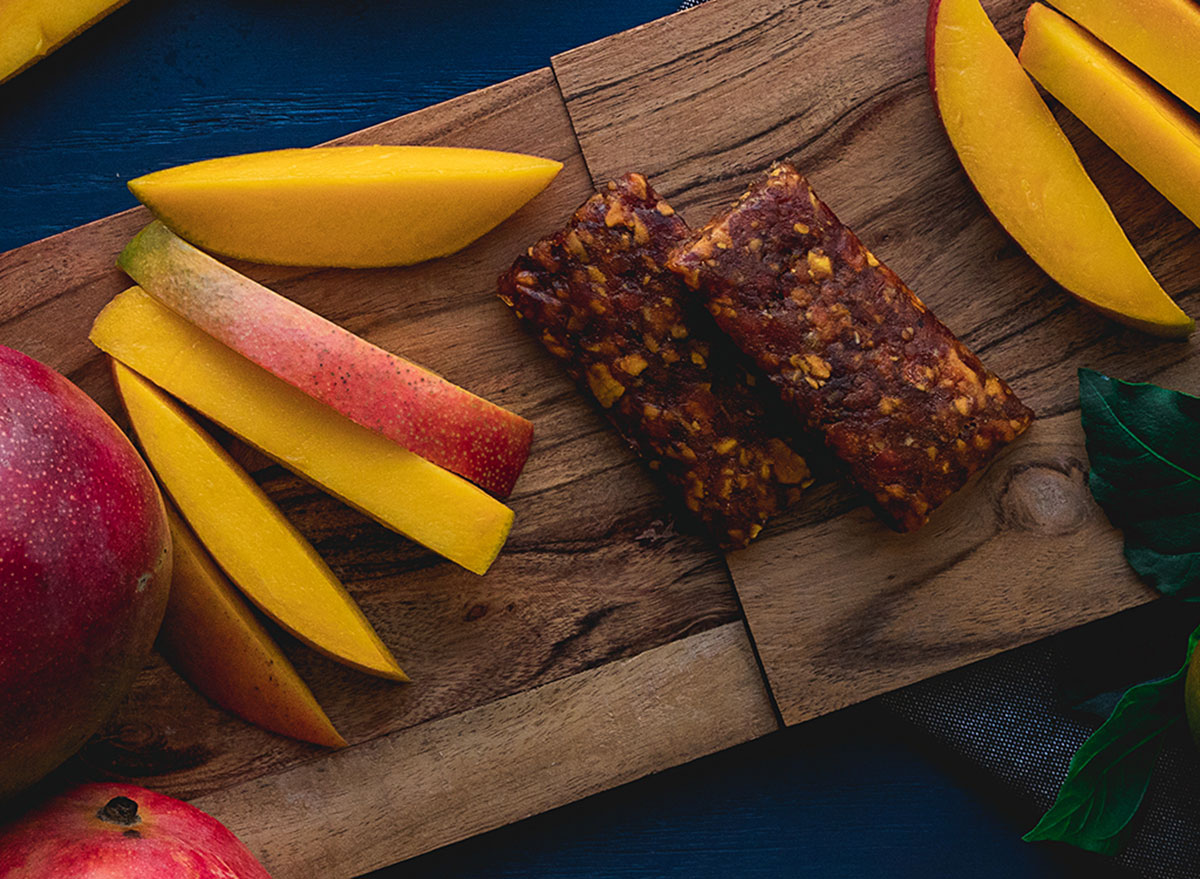
Watch out for hidden sugars.
Even though dried fruit is already a sweet snack, some varieties will actually have extra sugar added to make them even sweeter. Some dried fruits will have added syrups to make them sweet or will be “candied” (aka sugar-coated) on the outside. If you see “candied” at all on the package, McGrane says it’s wise to avoid it.
“While sugar is important—after all, it’s the primary fuel source for our brains—research has shown that too much sugar, especially added sugars, is associated with an increased risk for type 2 diabetes, obesity, heart disease, and stroke,” says McGrane.
McGrane says sugar shouldn’t be avoided entirely because it can help with brain function. Finding healthier sources of it though, like in fruits and starchy vegetables, is a better way to provide those natural sugars to your body. Plus, most of these items are high in fiber and other nutrients.
Be careful of sulfites.
The dried fruit sitting on the shelf sure looks pretty, but that color can be deceiving. Some companies will use sulfites in order to keep the color of a particular fruit. It’s natural for fruits to experience discoloration when they are dried out, so sulfites will sometimes be used to keep the color.
Sulfites are not only harmful to those with sulfuric allergies, but it can also cause a negative reaction to those who suffer from asthma.
“As some individuals can have negative reactions to sulfites, such as cramping or asthma attacks, make sure to carefully check the ingredient label,” says McGrane.
Paul recommends checking nutrition labels for the following names: Potassium Bisulfite, Potassium Metabisulfite, Sodium Metabisulfite, Sodium Sulfite, Sulfur Dioxide, Sodium Bisulfite.
“If you’re worried about this, choose dried fruit without these ingredients, or just look for dried fruit where the only ingredient is the fruit itself,” says Paul. Ekoa bars fit the bill—the only ingredients used are dates and fruits.
Choose simple ingredients.
Both Paul and McGrane recommend looking at the ingredient list and nutrition labels before buying any dried fruit product. It’s your best bet in avoiding any added sugars or sulfites in your dried fruit. Look for brands that have simply sun-dried, freeze-dried, or just dehydrated fruit. The simpler, the better, which is why Ekoa keeps their dried fruit bars between one and three ingredients per bar.
Keep the expiration date in mind.
Even though dried fruit is known for having a long shelf life, it’s important to keep the expiration date in mind.
“Because it’s a food, it’s a fruit; it will perish at some point,” says Paul. “So you do want to check the expiration date and make sure that it’s still safe to eat. And just like anything, if a package of something was opened, it will likely expire faster than the expiration date.”
